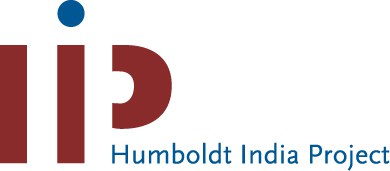14th HIP Workshop: 23th January 2015
When?
23th Jan 2015
2:00-7:00 pm
Where?
Department of South Asia Studies
Institute of Asian and African Studies
Invalidenstr. 118, Room: 217
Programm
| 2.15–3.15 pm |
Mario Alexander Laatsch, IAAW, HU Berlin: The Kanwar Yatra, or How to Invent an Old Tradition. |
| 3.15–4.15 pm |
Lorenz Graitl, BGSMCS, FU Berlin / IAAW, HU Berlin: Disputed Regional Identity: The Telangana Movement and Muslims |
| 4.15–4.45 pm | Coffee/Tea Break |
| 4.45–5.45 pm |
Aurora Sanchez Palacio, Law Faculty, HU Berlin:
The Role of the Judiciary in Social Change in Pakistan: Origin and Evolution of Suo Motu Jurisdiction |
| 5.45–6.45 pm |
Aardra Surendran, JNU, New Delhi / FU Berlin:
Workers' Associations and Political Action: Notes from a Public Sector Undertaking in Mumbai, India |
| 6.45 onwards | Drinks and Snacks |
Contact
If you have any questions, please email: sadia.bajwa@asa.hu-berlin.de
Abstracts:
The Kanwar Yatra, or How to Invent an Old Tradition
Mario Alexander Laatsch, IAAW, HU Berlin
The annual Kanwar Yatra has grown into an utmost popular pilgrimage event in northern India. Having its roots seemingly in the city of Deoghar (Jharkhand), it was obviously copied to Hardwar just three decades ago and is now proclaimed as a 'very old tradition'. By describing and comparing the festivals in Deoghar and Hardwar, I want to find out why and by whom the event was brought to Hardwar: Which groups are gaining profit from these mass events; and because of usual suspects, it is necessary to examine to which degree the Kanwar Yatra is generally infiltrated by Hindu-nationalist propaganda and agitators.
Disputed Regional Identity: The Telangana Movement and Muslims
Lorenz Graitl, BGSMCS, FU Berlin / IAAW, HU Berlin
From 2009 on the Telangana Movement was campaigning to divide the Indian state of Andhra Pradesh to overcome internal economic inequalities. Large parts of the Muslim community were active in the movement from the beginning. Through this participation Muslims activists tried to communicate that they are an integral part of the Telangana region and they used this to promote their particular interests. At the same time the Hindu nationalist BJP was able to gain political grounds by polarizing the public along religious lines. This triggered disputes over internal belonging inside the movement that are still ongoing.
The Role of the Judiciary in Social Change in Pakistan: Origin and Evolution of Suo Motu Jurisdiction
Aurora Sanchez Palacio, Law Faculty, HU Berlin
The Supreme Court of Pakistan has become prominent for deciding public interest cases without the application of any party - suo motu-, which represents a break with traditional adjudication and a peculiar legal feature from a comparative perspective. This doctoral project delves into the notion of suo motu jurisdiction and public interest litigation in Pakistan to analyze where this figure comes from and how the superior judiciary has made use of it.
Workers' Associations and Political Action:
Notes from a Public Sector Undertaking in Mumbai
Aardra Surendran, JNU, New Delhi / FU Berlin
This is a study of working class associations in a public sector fertilizer company based in Mumbai. In using the phrase ‘working class associations’ I wish to point out that while workers within this industrial enclosure organise themselves primarily into trade unions, they are also part of a variety of other associations in the factory township, the organisational object of which are not issues of labour in an explicit sense. I wish to make the case that one of the channels to obtain a deeper understanding of the complexities that constitute industrial labour in contemporary India is an exploration of the tensions embedded in its collective articulation of ‘civil’ and/or ‘political’ concerns. The study is in this sense both an associational history of labour, as also a cross sectional analysis of the meanings and implications of working class association.






